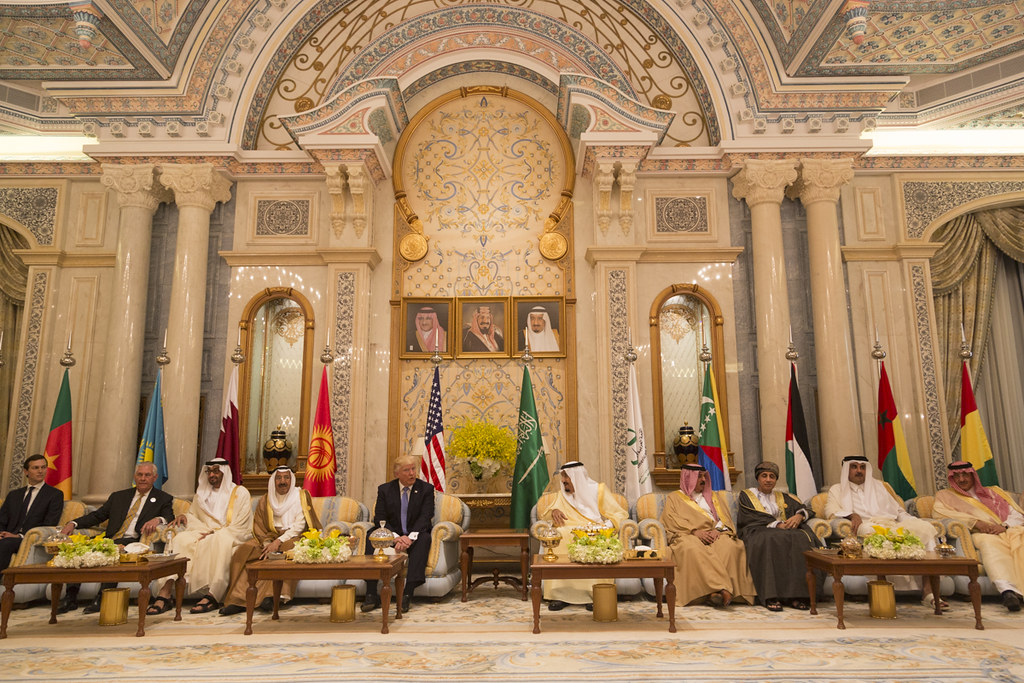The Strategic Dilemma of Gulf Monarchies Amid Escalating Iran-Israel Tensions
So Yeon Ahn (SNUAC)
Following Israel’s attack on Iran and the subsequent U.S. strike on Iranian nuclear facilities under the Trump administration, the already unstable situation in the Middle East has further deteriorated. This new phase of conflict began just as expectations were rising that the Gulf states would emerge as key players in shaping a new regional order—particularly following President Trump’s visit to three Gulf nations in May. In this context, the inner stance of the Gulf monarchies is seen as highly complex.
Immediately after Israel’s strike on Iran, Arab and Islamic countries—including Gulf states like Saudi Arabia, Qatar, and the UAE—strongly condemned the attack, expressing firm opposition and emphasizing the need to halt Israel’s hostile actions toward Iran. Although Gulf states publicly denounced Israel’s aggression, they are believed to be calculating a complex set of strategic interests behind the scenes. In his speech in Saudi Arabia last May, President Trump urged the kingdom to join efforts to normalize relations with Israel. Saudi Arabia has been informally pursuing normalization with Israel for some time. However, the recent attack is expected to weaken momentum toward formalizing such ties.
Another major concern for Gulf states is that the escalating Iran-Israel conflict could destabilize the region, inevitably disrupting their ambitious economic reform agendas—one of their top priorities. Furthermore, the U.S. military’s involvement raises the risk that Iran might retaliate by attacking American forces stationed in Gulf countries, creating a direct security threat. For this reason, Gulf monarchies are eager to prevent further escalation. Adding to their concerns is the worst-case scenario: an explosion at an Iranian nuclear facility could lead to severe environmental contamination, which also deeply worries the Gulf monarchies.
While these states continue to oppose Iran’s acquisition of nuclear weapons, they may find some relief in the weakening of Iran’s power following the attack. Still, if the conflict ultimately leads to a strengthened Israeli presence in the region—disrupting the balance of power in the Middle East—this is not a scenario the Gulf states welcome. In short, the Gulf monarchies find themselves unable—or unwilling—to adopt a clear position or response in the current Iran-Israel conflict.
이란-이스라엘 갈등 격화 속 복잡한 걸프 왕정 국가들의 심리
안소연 (아시아연구소)
이스라엘의 이란 공격에 이은 미국 트럼프 행정부의 이란 핵시설 타격으로 중동 지역의 불안정한 정세가 더욱 심화되고 있다. 지난 5월 트럼프 대통령의 걸프 3개 국가 방문 이후 걸프 국가들은 중동의 새로운 질서를 주도해가는 주역이 될 것이라는 기대가 고조되고 있었던 상황에서 시작된 이번 갈등 국면에서 걸프 왕정 국가들의 속내는 매우 복잡한 상황일 것으로 평가된다. 이스라엘의 이란 공격 직후 사우디아라비아, 카타르, UAE 등 걸프 국가를 포함한 아랍 및 이슬람 국가들은 이란에 대한 이스라엘 공격에 대한 단호한 거부와 규탄을 표명하며 이란에 대한 이스라엘의 적대 행위를 중단해야 하는 필요성을 강조하였다.
표면적으로 이스라엘의 이란 공격을 비난하였으나 걸프 국가들은 이번 공격을 두고 복잡한 셈법에 놓여 있을 것으로 보인다. 먼저 지난 5월 미국 트럼프 대통령은 사우디아라비아에서 갖은 연설에서 사우디가 이스라엘과 관계 정상화에 동참할 것을 촉구하였다. 사우디는 비공식적으로 이스라엘과 관계 정상화를 꾸준히 추구해왔다. 하지만 이번 공격으로 인해 이스라엘과 관계정상화를 위한 추동력이 약화될 것으로 전망된다. 또한, 이번 이스라엘-이란 갈등으로 인하여 중동 지역 정세가 불안정해짐으로써 걸프 국가들이 추진하고 있는 경제 개혁의 차질이 불가피할 전망도 걸프 국가들의 주요 우려 중 하나이다. 또한, 미국의 개입으로 인해 이란이 걸프 국가에 위치하고 있는 미군을 공격함으로서 직접적인 안보 위기에 처할 가능성도 높은 상황 속에서 걸프 국가들은 이번 갈등이 더 이상 고조되는 것을 원하지 않는다. 이에 더해, 최악의 시나리오로 이란 핵시설 폭발로 인한 환경 오염 등도 걸프 왕정 국가들의 큰 우려 중 하나이다.
걸프 왕정 국가들은 여전히 이란의 핵 보유를 부정하면서 이번 공격으로 인해 이란의 세력이 약화되었음을 확인하면서 안도할 수도 있다. 하지만 이번 갈등이 결국 이스라엘의 역내 세력 강화를 상징하여 중동 역내 세력 균형이 무너지는 것 또한 걸프 국가들이 바라는 시나리오가 아닐 것이다. 즉, 이번 이란-이스라엘 갈등 국면에서 걸프 국가들은 뚜렷한 입장이나 대응을 내세우지 못하는 상황이라고 볼 수 있다.

